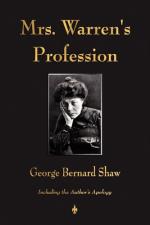It will be asked whether theatrical managers are to be allowed to produce what they like, without regard to the public interest. But that is not the alternative. The managers of our London music-halls are not subject to any censorship. They produce their entertainments on their own responsibility, and have no two-guinea certificates to plead if their houses are conducted viciously. They know that if they lose their character, the County Council will simply refuse to renew their license at the end of the year; and nothing in the history of popular art is more amazing than the improvement in music-halls that this simple arrangement has produced within a few years. Place the theatres on the same footing, and we shall promptly have a similar revolution: a whole class of frankly blackguardly plays, in which unscrupulous low comedians attract crowds to gaze at bevies of girls who have nothing to exhibit but their prettiness, will vanish like the obscene songs which were supposed to enliven the squalid dulness, incredible to the younger generation, of the music-halls fifteen years ago. On the other hand, plays which treat sex questions as problems for thought instead of as aphrodisiacs will be freely performed. Gentlemen of Mr Redford’s way of thinking will have plenty of opportunity of protesting against them in Council; but the result will be that the Mr Redford will find his natural level; Ibsen and Tolstoy theirs; so no harm will be done.
This question of the Censorship reminds me that I have to apologize to those who went to the recent performance of Mrs Warren’s Profession expecting to find it what I have just called an aphrodisiac. That was not my fault; it was Mr Redford’s. After the specimens I have given of the tolerance of his department, it was natural enough for thoughtless people to infer that a play which overstepped his indulgence must be a very exciting play indeed. Accordingly, I find one critic so explicit as to the nature of his disappointment as to say candidly that “such airy talk as there is upon the matter is utterly unworthy of acceptance as being a representation of what people with blood in them think or do on such occasions.” Thus am I crushed between the upper millstone of the Mr Redford, who thinks me a libertine, and the nether popular critic, who thinks me a prude. Critics of all grades and ages, middle-aged fathers of families no less than ardent young enthusiasts, are equally indignant with me. They revile me as lacking in passion, in feeling, in manhood. Some of them even sum the matter up by denying me any dramatic power: a melancholy betrayal of what dramatic power has come to mean on our stage under the Censorship! Can I be expected to refrain from laughing at the spectacle of a number of respectable gentlemen lamenting because a playwright lures them to the theatre by a promise to excite their senses in a very special and sensational manner, and then, having successfully trapped them




